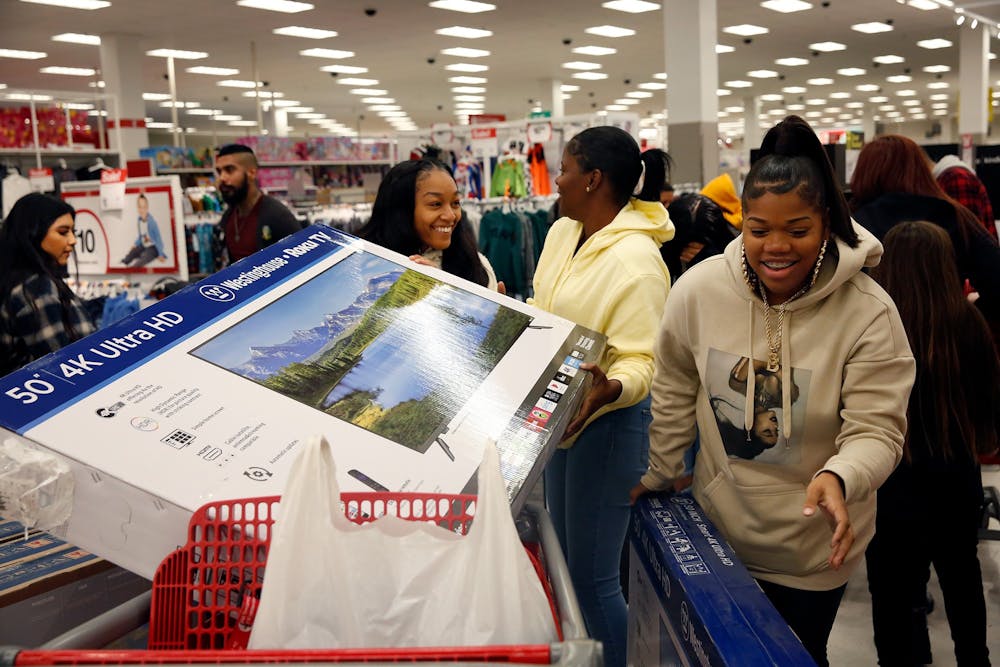As holiday shopping kicked off with record setting online sales of $9.12 billion on Black Friday this past week, experts are signaling a possible rise in compulsive buying behaviors among the general public for the upcoming weeks leading up to winter holidays.
According to the National Center for Biotechnology Information, compulsive buying disorder is characterized by excessive shopping habits and buying behavior that leads to distress or impairment. Mary Lay, director of the Indiana Problem Gambling Awareness Program, said compulsive buying disorders are a possible result of impulse control disorders or obsessive-compulsive issues. Lay said approximately 6% of the U.S. general population deal with compulsive buying disorder during their lifetime.
“For students and others, they find some satisfaction or positive results from purchasing things,” Lay said. “The process of shopping helps them feel better. It’s a way to improve their social status to feel more like others.”
Related: [Research shows that seasonal items are here to stay for some time]
People often engage in excessive buying to relieve anxiety or stress, Lay said. However, she said continually engaging in these behaviors overtime can have adverse effects such as putting people in debt. Lay said compulsive buying behaviors can increase during the holiday season due to the stress and anxiety many people experience during that time of year, such as financial stress or spending time with family or people they might not normally see.
“As with any other related type of behavior, oftentimes, you have to do more of it to get the same feeling,” Lay said. “You may start out and find that buying two pairs of shoes helped you relieve your stress. Over time, you may find yourself buying three, four or five or more to get the same feeling, so you continue to do it.”
Additionally, Lay believes increasing availability of online shopping allows people to engage in compulsive buying behaviors at much higher rates.
“It goes back to addiction whether it be smoking or alcohol or any of the other substance related addictions, it’s simply the access,” Lay said. “The easier it is to shop, the easier it is for you to engage in your behavior.”
IU senior Susan Landman said she has seen compulsive buying behaviors among college students. She points to online shopping, specifically recommendation algorithms, as a major contributor.
“Especially with online shopping, there’s so many brands that just always have discounts,” Landman said. “I will see friends that have a new outfit every week. I just noticed in general that there’s really a mentality of ‘I want it, so I’ll just buy it’ instead of ‘I want it, but I don’t need it, so I won’t get it now.’”
Related: [IU experts urge students to prioritize getting the flu shot as Thanksgiving approaches]
IU junior Yashvi Shah, who also said compulsive buying behaviors are prevalent among her peers, believes peer pressure can drive this form of shopping.
“We are literally all living the same life on one campus, so if you see a bunch of people having this one thing and it’s on discount, then we would want to buy it,” Shah said. “It is very contagious, so we just end up buying things we don’t really want.”
Like Landman, Shah said the convenience of online shopping and delivery further encourages students to buy products and services they do not need.
“It’s so much more convenient just to get your stuff at your doorstep at almost the same price and have the membership. I’m just too used to Amazon right now,” Shah said. “Going to a mall or shop to get all the small things seems like a huge task right now because we have Amazon.”
For students dealing with compulsive buying disorder, Lay recommends they visit the Psychological Services department at the IU Student Health Center. Students can also participate in the IU MoneySmarts program, which helps students examine and plan their spending.




